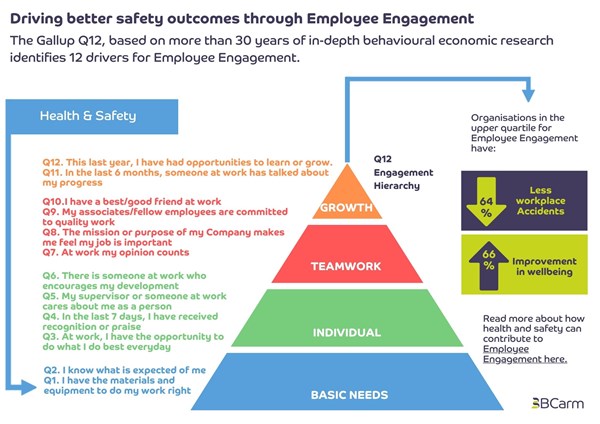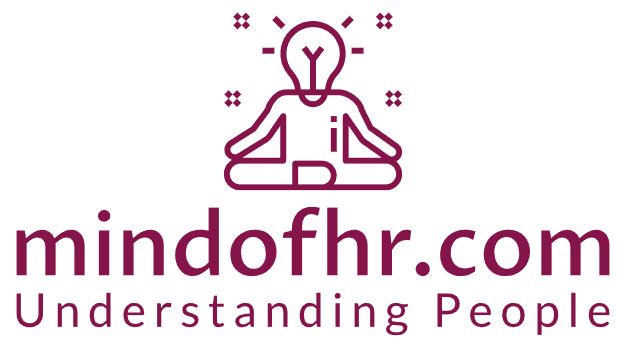In an era where employee engagement is crucial for organizational success, Gallup’s Q12 survey stands out as a powerful tool for measuring and enhancing workplace satisfaction. Developed in 1998, the Q12 consists of twelve straightforward questions designed to gauge various aspects of employee engagement. Each question is rooted in extensive research and reflects the factors that significantly impact employee performance and organizational outcomes. This article delves into each question of the Q12, exploring its relevance in the modern office context.
Understanding Gallup’s Q12
The Gallup Q12 consists of 12 specific questions that assess various dimensions of employee engagement, including role clarity, recognition, and connection to the organization’s mission. Each question is rated on a scale from 1 to 5, allowing employees to express their feelings anonymously. This anonymity encourages honest feedback, which is crucial for identifying areas needing attention and improvement.
Key Components of the Q12
- Role Clarity: Employees need to understand their roles and responsibilities clearly.
- Recognition: Regular acknowledgment of employees’ contributions fosters a sense of value.
- Development Opportunities: Access to personal growth and career advancement is vital for retention.
- Connection to Purpose: Employees who feel connected to the organization’s mission are more engaged.

The Gallup Q12 Questions and Their Modern Relevance
1. I know what is expected of me at work.
Relevance: Clarity in job expectations is fundamental for employee performance. In today’s hybrid work environments, where roles may evolve rapidly, ensuring employees understand their responsibilities helps reduce confusion and enhances productivity. Clear expectations also foster accountability, making it easier to measure performance.
2. I have the materials and equipment I need to do my work right.
Relevance: Access to appropriate tools is essential for efficiency. In a time when remote work has become prevalent, organizations must ensure that employees have the necessary technology and resources to perform their tasks effectively. This support contributes to job satisfaction and reduces frustration.
3. At work, I have the opportunity to do what I do best every day.
Relevance: Employees who can leverage their strengths are generally more engaged and productive. In modern workplaces, where talent development is prioritized, allowing employees to focus on their strengths leads to higher job satisfaction and better outcomes for the organization.
4. In the last seven days, I have received recognition or praise for doing good work.
Relevance: Recognition is a key driver of motivation. Regular acknowledgment of achievements fosters a positive culture and encourages continued high performance. In remote settings, where personal interactions are limited, finding creative ways to recognize contributions can maintain morale.
5. My supervisor, or someone at work, seems to care about me as a person.
Relevance: Building strong relationships between employees and supervisors enhances engagement. In today’s diverse workplaces, demonstrating genuine care fosters trust and loyalty, which are critical for retention and collaboration.
6. There is someone at work who encourages my development.
Relevance: Professional development opportunities are increasingly important to employees, especially younger generations seeking growth in their careers. Organizations that prioritize mentorship and training create a more engaged workforce that feels invested in their future.
7. At work, my opinions seem to count.
Relevance: Encouraging employee input fosters a sense of ownership and belonging within the organization. In a time when transparency and inclusivity are valued, ensuring that employees feel heard can significantly enhance engagement levels.
8. The mission or purpose of my company makes me feel my job is important.
Relevance: Connecting individual roles to the broader organizational mission increases motivation and commitment. Employees today seek meaning in their work; thus, articulating a clear purpose can enhance engagement significantly.
9. My associates or fellow employees are committed to doing quality work.
Relevance: A collaborative environment where team members are dedicated to excellence enhances overall performance. In modern workplaces that emphasize teamwork—especially in hybrid models—this commitment is vital for achieving collective goals.
10. I have a best friend at work.
Relevance: Fostering friendships at work contributes to a positive workplace culture and can improve job satisfaction and retention rates. As remote work becomes more common, creating opportunities for social interaction is essential for maintaining these relationships.
11. In the last year, I have had opportunities at work to learn and grow.
Relevance: Continuous learning is critical in today’s fast-paced environment where skills evolve rapidly. Organizations that provide learning opportunities not only enhance employee engagement but also ensure they remain competitive in their industries.
12. I know how my work contributes to the organization’s goals.
Relevance: Understanding how individual contributions impact overall success fosters a sense of purpose among employees. This connection is particularly important in larger organizations where employees may feel disconnected from the company’s objectives.
Benefits of Implementing the Q12
- Enhanced Performance: Research shows a strong correlation between high engagement levels measured by the Q12 and improved performance outcomes, including profitability and customer satisfaction.
- Informed Decision-Making: By utilizing data from the Q12, leaders can make informed decisions about management practices and organizational changes that enhance employee satisfaction.
- Resilience During Challenges: Organizations with engaged employees are more resilient during economic downturns or crises, as they tend to have lower turnover rates and higher productivity levels.
Adapting the Q12 for Future Success
As workplaces continue to evolve, organizations must adapt the Q12 to address emerging trends such as remote work and increased demands for personal growth. Tailoring questions to reflect these changes can help ensure that employees feel valued and engaged in their roles. For instance, incorporating questions about work-life balance or opportunities for virtual collaboration can provide deeper insights into employee satisfaction in a hybrid work environment.
Continuous Improvement
To maximize the effectiveness of the Q12, organizations should regularly analyze survey results and implement actionable strategies based on employee feedback. This iterative process not only enhances engagement but also fosters a culture of continuous improvement within the organization.
Conclusion
The Gallup Q12 survey remains an invaluable tool for organizations striving to enhance employee engagement in today’s dynamic workplace landscape. By focusing on these twelve critical questions, companies can identify strengths and weaknesses within their workforce, leading to targeted improvements that boost morale and productivity.Incorporating regular assessments using the Q12 not only provides insights into employee sentiment but also fosters an environment of continuous improvement—a necessity for thriving in today’s competitive market. As organizations navigate the complexities of modern work environments, leveraging tools like Gallup’s Q12 will be essential for cultivating an engaged and motivated workforce capable of driving success.










